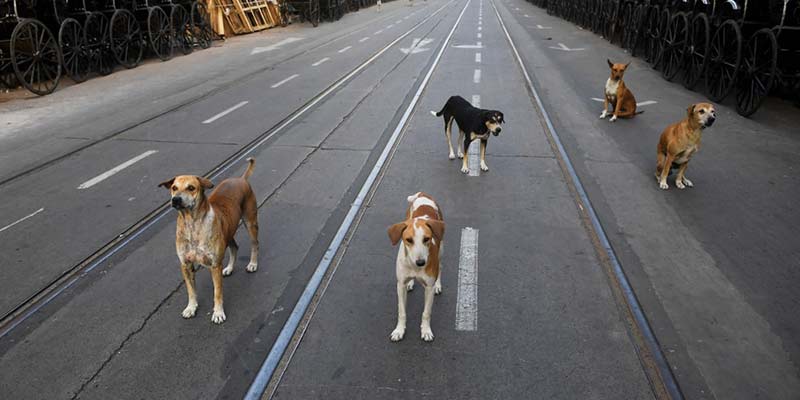- India
- Apr 19
Govt notifies new Animal Birth Control Rules
The Centre has notified the Animal Birth Control Rules, 2023 under Prevention of Cruelty to Animal Act, 1960.
The Animal Birth Control Rules, 2023 were issued following the guidelines of the Supreme Court in a case between Animal Welfare Board of India and People for Elimination of Stray Troubles.
The 2023 rules supersedes the Animal Birth Control (Dog) Rules of 2001.
Key points of the rules:
• As per new rules, the Animal Birth Control (ABC) programme for sterilisation and immunisation of stray dogs is to be carried out by the respective local bodies.
• One of the requirements under the rule is that the ABC Programme needs to be carried out by organisations recognised by the Animal Welfare Board of India (AWBI) specifically for this purpose.
• The list of such organisations will be made available on the website of the Board, which will also be updated from time to time.
• The municipal corporations need to implement the ABC and anti-rabies programme jointly.
• The rules also provide guidelines on how to deal with human and stray dog conflicts without relocating dogs in an area.
• By effective implementation of these rules, the ABC can be conducted by the local bodies which will help in reducing the stray dog population addressing the animal welfare issues.
What is the role of Animal Welfare Board of India?
• The Animal Welfare Board of India (AWBI) is a statutory advisory body on animal welfare laws and promotes animal welfare in the country.
• AWBI was set up in 1962 in accordance with Section 4 of the Prevention of Cruelty to Animals Act 1960. The well-known humanitarian Rukmini Devi Arundale was the founder chairperson of the Board.
• The Board consists of 28 members, including six members of Parliament (four from Lok Sabha and two from Rajya Sabha) and others from different walks of life, all nominated by the government of India.
• The Board is reconstituted once in three years.
• The headquarters of AWBI is at National Institute of Animal Welfare (NIAW) campus, Ballabhgarh in Haryana.
• AWBI is the country’s single largest funding organisation for furtherance of animal welfare work.
Functions of AWBI:
• To keep the law in force in India for the Prevention of Cruelty to Animals under constant study and to advise the government on the amendments to be undertaken in any such law from time to time.
• To advise the central government on the making of rules under the Act with a view to preventing unnecessary pain or suffering to animals generally, and more particularly when they are being transported from one place to another or when they are used as performing animals or when they are kept in captivity or confinement.
• To advise the government or any local authority or other person on improvements in the design of vehicles so as to lessen the burden on draught animals.
• To take all such steps as the Board may think fit for amelioration of animals by encouraging or providing for, the construction of sheds, water troughs and the like and by providing for veterinary assistance to animals.
• To advise the government or any local authority or other person in the design of slaughter houses or the maintenance of slaughter houses or in connection with slaughter of animals so that unnecessary pain or suffering, whether physical or mental, is eliminated in the pre-slaughter stages as far as possible, and animals are killed, wherever necessary, in as humane a manner as possible.
• To take all such steps as the Board may think fit to ensure that unwanted animals are destroyed by local authorities, whenever it is necessary to do so, either instantaneously or after being rendered insensible to pain or suffering.
• To encourage by the grant of financial assistance or otherwise, the formation or establishment of pinjarapoles, rescue homes, animal shelters, sanctuaries and the like, where animals and birds may find a shelter when they have become old and useless or when they need protection.
• To cooperate with, and coordinate the work of, associations or bodies established for the purpose of preventing unnecessary pain or suffering to animals or for the protection of animals and birds.
• To give financial and other assistance to animal welfare organisations functioning in any local area which work under the general supervision and guidance of the Board.
• To advise the government on matters relating to the medical care and attention which may be provided in animal hospitals, and to give financial and other assistance to animal hospitals whenever the Board thinks it necessary to do so.
• To impart education in relation to the humane treatment of animals and to encourage the formation of public opinion against the infliction of unnecessary pain or suffering to animals and for the promotion of animal welfare by means of lectures, books, posters, cinematographic exhibitions and the like.
• To advise the government on any matter connected with animal welfare or the prevention of infliction of unnecessary pain or suffering on animals.
Manorama Yearbook app is now available on Google Play Store and iOS App Store


